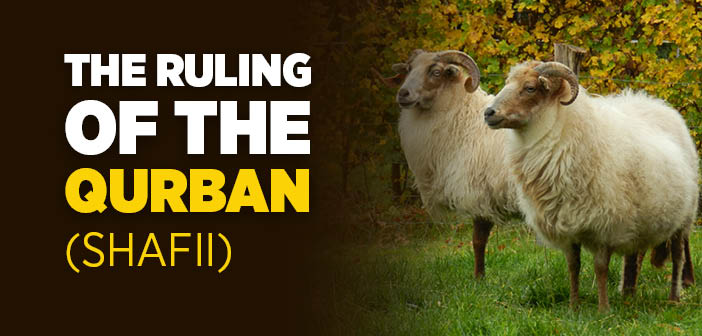What is the ruling og the qurban? What are the rules of qurbani?
Slaughtering sacrifice is an order of Allah to His Messenger (pbuh). This is expressed in the following verse, “Therefore to your Lord (alone) turn in Prayer and Sacrifice.”[1]
The verse “To every people did We appoint rites (of sacrifice), that they might celebrate the name of Allah over the sustenance He gave them from animals (fit for food). But your god is One God: submit then your wills to Him (in Islam): and give thou the good news to those who humble themselves”[2] also points to the fact that offering blood sacrifices is something that Allah Almighty wants from His servants.
Allah’s Messenger warns the believers in this regard as follows, “Whoever can afford it, but does not offer a sacrifice, let him not come near our prayer place.”[3]
In another tradition, Allah’s Messenger (pbuh) points out that the act of offering a blood sacrifice goes back to the Prophet Abraham (pbuh) as follows, “Offer sacrifices because this is the Sunnah of your father Abraham (pbuh).”[4]
It is a Sunnah upon a Muslim who owns the money required to purchase the animal over and above his basic needs and the needs of those for whom he provides financial support on the days of festival. The responsibility of offering a sacrifice cannot be fulfilled by donating a live animal or money equal to its value to the poor and the needy.
Offering a qurban on the days of Festival of Sacrifice is a vigorously enjoined individual Sunnah (kifai Sunnah muakkadah) upon the wealthy and the free Muslims who have reached the age of puberty and have a sound mind. (According to the Hanafi School, it is wajib (necessary) upon those who are accepted by definition of Islamic Law as wealthy.)
The offering of a qurban is both an individual Sunnah-based practice for a single person and a collective Sunnah-based practice for the members of a single household or several households for whose financial support one person is responsible. In other words, if a qurban is slaughtered by the person who is financially responsible for the members of a given household or a number of given household(s), the members of this household, or these households, will be exempted from the requirement to offer an qurban even though it would be an emulation of the Sunnah for each of them separately. (According to the Hanafi School, every rich member of a household has to offer a sacrifice individually.)
Regarding the responsibility of qurban, there is no difference between a traveler and a resident. (According to the Hanafi School, qurban is not wajib upon a traveler.)
If a person vows to offer a sacrifice on the days of Festival of Sacrifice, then it becomes obligatory upon him to offer a sacrifice in those days. If he does not, then he becomes a sinner. It is not permissible to the person who offers a sacrifice as a result of a vow (nadhr) to eat from the meat of the animal that he sacrificed. It is also not permissible for him to let the rich people or the people for whose financial support he is responsible for, to eat from it. He must distribute all parts of his votive sacrifice including its hide among the poor.
One does not have to offer a sacrifice in the name of a deceased person unless the the deceased leaves a will asking for a sacrifice in his name. It is not allowed either to slaughter an animal on behalf of another person unless he specifically gives permission and the power of proxy in this matter. (According to the majority of the scholars except the Shafiis, one may offer a voluntary sacrifice to send its spiritual rewards to a deceased person.)
[1] Al-Kawthar, 108: 2.
[2] Al-Hajj, 22: 34.
[3] Ibn Maja, Adahi 2
[4] Sunan ibn Maja
Source: Fiqh1 (According To The Shafi’i School Of Islamic Law), Erkam Publications





